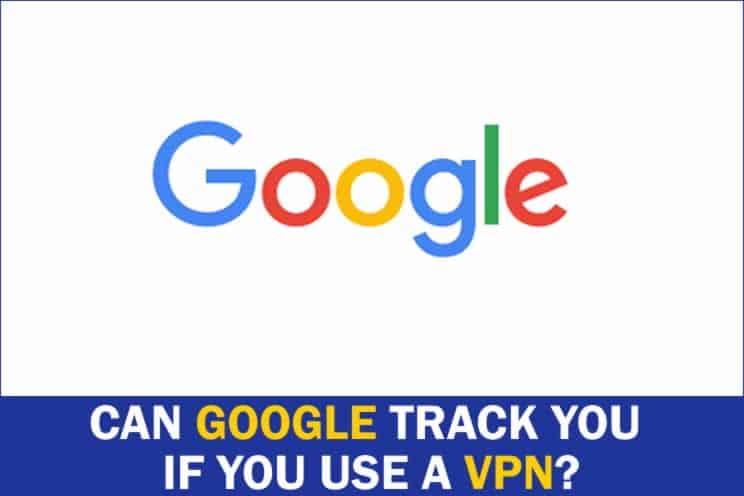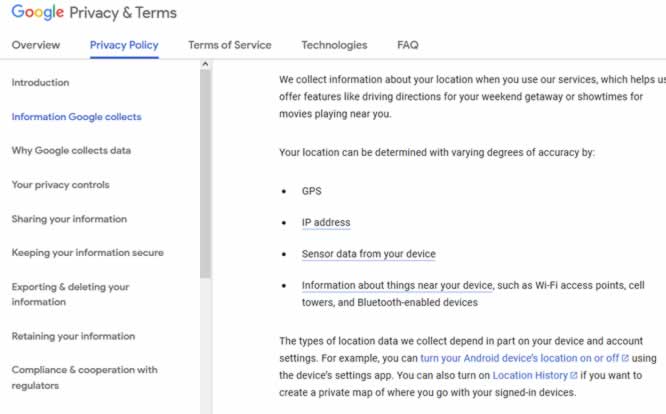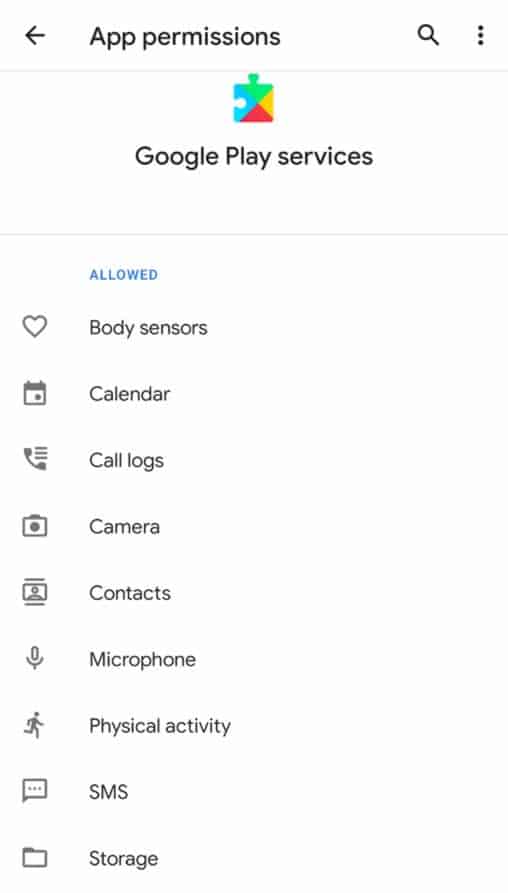
I use Google search all the time and wanted to find out about any tracking Google might do, when I’m browsing my websites through my VPN. I also use other Google products like Maps, Health apps to YouTube and this made me concerned about how far Google could track me.
Can Google track you if you use a VPN? Google can track you when a VPN is used, if you are logged into any Google apps or services. If you are not logged into any Google apps or services, then it’s much more difficult for Google to track activities like browsing history.
When you are logged into Google using one of their many products, like Google Search, Gmail, Google Maps, Google Assistant to YouTube. Google knows who you are based on the information you have supplied it, including your personal details and information it can easily garner from your device, like your IP address. When you now connect using a VPN, Google already knows who you are and where you are, the VPN will only anonymize you from the any other websites you visit and not from Google.
Any searches done whilst logged into Google services in Google apps like Google Search and YouTube, will be known to Google and stored in their logs. Google collects a lot of information about their users including your IP address, your age, internet habits like shopping to even health issues.
Google needs to know this information for it to be able to target advertising at you, as targeted advertising based on what you like is more likely to appeal to you. Google knows when their targeted advertising appeals to their users, advertising becomes easier to sell in more and more profitable quantities.
I never log into any Google services like Google Search or YouTube, so any profile Google builds up won’t necessarily be as rich as users who do log into Google services.
Incognito and Private Browsing
I’ve met many people who think just by using the private browsing mode in web browsers (Private Window in Mozilla Firefox or Incognito in Google Chrome) they are protected from tracking.
Incognito and Private Browsing modes on some browsers do not stop Google from tracking you, let alone the websites being visited, as your real IP address is being used to make the connections. This is why it is essential to use a VPN to stop websites and Google from being able to tie your real IP address to your online activities.
How does Google know my location even with VPN?
Google will know your location even with a VPN if you have your location services switched on or have been using Google services whilst logged onto them prior to using your VPN. As Google’s apps will already know your real IP address and this will give away the location of area you live in.
Again, I always shy away from logging into Google services and I never keep my location services on my smartphone switched on all the time. I know many people who just leave it on, oblivious to the fact their movements are visible to the apps on their phone that have permission to utilize the location services like Google Maps. With some services requiring locations services to be available like Find my Phone type apps, so they can track down a lost phones location.
Many people automatically grant the apps they install access to their location services

The above screenshot is from Google’s Privacy Policy and you can see in the part ‘Your location can be determined with varying degrees of accuracy by:’, the many different methods Google can use to try to find out your location.
When I’m in a coffee shop and use their Wi-Fi, the connection needs to happen before the VPN software can then make its connection to the VPN server. By knowing the identifier of the Wi-Fi, it’s SSID and the Wi-Fi access points IP address, any apps including Google could determine the location of the coffee shop I’m at by being able to check it’s vast databases of knowledge it has collected over many years.
I may not be the only one in the coffee shop using Google services and apps, more so I might be the only one using a VPN, but others in the coffee shop give my location away as they browse the internet using an unprotected Wi-Fi connection. This all fuels the information Google has its disposal to be able to work out that the Wi-Fi I’m connected to, is based in the exact coffee shop I’m in.
Another way could be if I’m connected to a VPN server in another country, Google could potentially work out my initial connection from the Google apps and services I use on my device. So, when I connect to other services using the IP address assigned to me by the VPN, Google will probably know the IP address as being assigned by the VPN (from its previously collected information) and my real IP address as revealed by its apps and services on my devices.
How do I stop Google from tracking my computer?
To stop Google from tracking your computer is not as simple as logging into your Google account and just turning Location History off in the Location History section of the Google account. The Web & App Activity in the Activity Controls section also needs to be turned off, as otherwise Google could use other ways to track you.
I think it is always important to switch off your location services if you are using your phone when connecting to the internet and also use a VPN, preferably an always on VPN that starts up as soon as you log into your computer. The VPN connection will allow you to use the fake IP address given to you by the VPN.
I read an article by a University of California, Berkeley computer science graduate student, K. Shankari, who was amazed to find out Google was still able to work out his location even when he had his Location History turned off.
He found that the Google Play Service (sometimes appears as Google Location services) uses a database to map location data from the phones GPS sensors, Wi-Fi sensors and the cell data sensors. Through using the location of the Wi-Fi access points and the cell towers used for connecting phone calls, the location can be determined.
The screenshot below shows how much access information Google Play services can collect and that doesn’t even include location data.

It’s a lot of information and this can easily allow some form of location analysis even if the location services are switched off.
He didn’t go into any details of using a VPN and how it could help somewhat in stopping any tracking taking place, if used with some precautions. But non the less, his article is fascinating into how easily Google can track you.
Data Leakage
Some VPNs can leak data and this data can be used to track you, revealing information about your internet activities. Therefore, it is essential to make sure any VPN to use has sufficient protection against DNS leaks and against WebRTC leaks.
DNS leaks can give away your real IP address, so instead of websites like Google seeing your VPN assigned fake IP address, they instead see your real IP address assigned to you by your internet provider.
WebRTC leaks can also give away your IP address by bypassing the VPN when making connections to services involved in instant messaging, file sharing and voice calls. Again, this allows tracking to take place as the real IP address and not the fake IP address is being used.
VPN Kill Switch
Even when using a good VPN, if the VPN has no kill switch protection, the real IP address can be divulged quite easily. VPN connections are prone to failing and when they do fail, even if it is only for a few seconds, the internet connection bypasses the VPN and travels naked across to the internet resource being connected to. This connection uses the real IP address and not the VPN assigned IP address.
The kill switch monitors the VPN connection and if the connection drops or fails completely, the kill switch stops all internet connectivity thereby protecting the real IP address from being divulged. When the VPN connection restores itself, the kill switch allows internet connectivity to resume, ensuring all connection travel through the VPN connection.
Check out my article on the safety of using paid VPN service providers and which ones make the better choice.
Conclusion
To protect your online activities from tracking using a VPN and making sure you’re not logged into any Google apps or services is paramount. On devices where location services are available these should be disabled, along with opting out of Web & App Activity controls.

